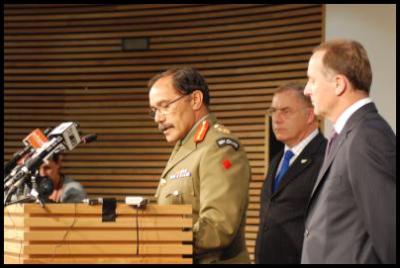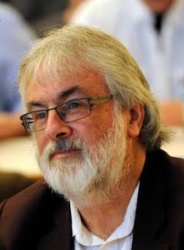Deadline: On NZ’s “Assistance” In Afghanistan
Scoop Deadline with Rory
MacKinnon
On NZ’s “Assistance” In
Afghanistan

The reports on New Zealand’s connection to a notorious Afghanistan prison all came and went in the space of a day, but it’s been on my mind a lot this week. Not the war itself, mind you, or the moral dilemmas of detainment – but the Government’s assurances back in February that it would be more candid about New Zealand’s operations in Afghanistan; assurances which six months on are hard to see as anything but a broken promise.
That infamous photo of SAS corporal Willie Apiata in February supposedly sparked a seachange in the Government’s PR policy. It is a fact, Prime Minister John Key told us, that “New Zealanders deserve to know what our forces are doing overseas on location”.
Yet the response from both the Prime Minister and the New Zealand Defence Force on the issue of arrests has revealed a continued and deliberate campaign of obfuscation and omission.
When Jon Stephenson first broke the story in last week’s Star-Times, Defence Minister Wayne Mapp confirmed that it was likely the SAS’ Afghan partners had sent its captives to the infamous National Directorate of Security, a CIA-styled facility known for its torture and abuse of inmates. The question was, did New Zealand’s military participate in those arrests? If so, New Zealand was at least partially responsible for those prisoners’ safety and potentially in breach of international law.
So did the SAS assist with these arrests? No, Key said. Echoing Chief of Defence Jerry Mateparae’s statements, the SAS were merely “working alongside” the Afghan Crisis Response and happened to be “in the vicinity” of the arrests. This nuanced perspective on association and intent rarely seems to extend to the people the coalition forces have arrested, but no matter. Perhaps Key and Mateparae were drawing a legitimate distinction; perhaps the SAS were waiting in the car the whole time and it’s simply operational security which prevents them from saying so.
But both Stephenson and I have previously received NZDF responses to OIA requests which use that same twisted logic to omit any information about arrests whatsoever.
In March we each filed OIA requests asking for basic information on the SAS’ operations. Buoyed by the Prime Minister’s promises of transparency, I asked how many arrests had the NZSAS assisted with in Afghanistan to date; when and where, whether NZSAS members had had prisoners in their custody, and of course into who else’s custody these detainees had been transferred. Stephenson asked much the same.
The NZDF responded with a now-familiar formula:
“…members of the NZSAS have not detained or arrested any persons in Afghanistan during their current deployment. NZSAS personnel have been in the vicinity when members of the Afghan National Security Forces have arrested or detained Afghans. NZSAS members have not assisted in detaining persons or making those arrests.” [Emphasis mine]
It should have been clear from my additional questions - did NZSAS members physically make arrests or have detainees in their custody at any time? – that I was not seeking some legalistic definition of assistance. The NZDF’s response clearly implied that the presence of NZSAS at these arrests was rare and coincidental, and with other stories on the boil I gave it little further thought.
It wasn’t until Stephenson’s story broke that I learned that Mateparae had told a parliamentary select committee in June – three months after my request - that the NZSAS had been in the vicinity twenty-two times. It beggars belief to think that soldiers would be deployed into potentially deadly situations twenty-two times for no particular reason of assistance, and Key and Mateparae insult New Zealanders’ intelligence in saying so.
This kind of sophistry is predictable but nonetheless disappointing, especially on the heels of such solemn promises of candor. Obviously I’ll be filing a complaint with the Ombudsmen, but I’d also like to hear from anyone else who has been given the runaround on this issue. After all, we deserve to know.
ENDS


 Ian Powell: Trumpian Health Leadership
Ian Powell: Trumpian Health Leadership Eugene Doyle: Disruption - Historians Challenge Russophobic Propaganda
Eugene Doyle: Disruption - Historians Challenge Russophobic Propaganda Ramzy Baroud: War, Doublethink, And The Struggle For Survival - Geopolitics Of The Gaza Genocide
Ramzy Baroud: War, Doublethink, And The Struggle For Survival - Geopolitics Of The Gaza Genocide Binoy Kampmark: Authoritarian Politics - Netanyahu’s War On Israeli Institutions
Binoy Kampmark: Authoritarian Politics - Netanyahu’s War On Israeli Institutions Keith Rankin: Learning The Correct Lessons From World War Two In Europe
Keith Rankin: Learning The Correct Lessons From World War Two In Europe Ramzy Baroud: Arab Failures - The Unspoken Complicity In Israel's Genocide
Ramzy Baroud: Arab Failures - The Unspoken Complicity In Israel's Genocide